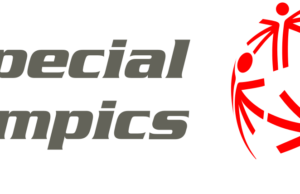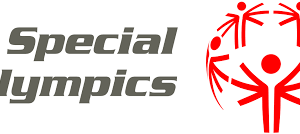Special Olympics sends 24 to State
Twenty four Cedar Falls students qualified for State at the Special Olympics track and field competition on Sunday, March 8 at the UNI track. The 24 students will be competing in Ames on May 21-23 for the Special Olympics state track and field meet.
To qualify, the students had to place first in their events. From Cedar Heights, Maya Jensen qualified in the 100 meter dash and the softball throw. From Southdale, Paxton Libbert qualified in the mini javelin throw and standing long jump. From Peet Junior High, Owen Brinker, Hannah Posekany, Chloe Steversan, Joe Kenkel and Kylie Bucholz qualified for the unified relay, Hannah Ferrell qualified for the softball throw and standing long jump, Josh Kreger qualified for the mini javelin throw, Simon Moes qualified for shotput and standing long jump, Hannah Posekany qualified for the 50 meter dash and mini javelin throw and Chloe Steverson qualified for the mini javelin throw. From Holmes Junior High, Davyd Leacox qualified in the 100 meter dash, softball throw, and 4×100 meter relay, Jacob Richard-Trask qualified in the 50 meter dash and 4×100 meter dash, Noah Thorton qualified in the mini javelin throw, standing long jump and 4×100 meter relay, Jayden Woock qualified in the 100 meter dash and 4×100 meter dash. From the Cedar Falls High School, Heather Andress qualified in the 50 meter dash, Cassidy Craig qualified in the unified relay, Alex Cunningham qualified in the 50 meter dash, Joey Elser qualified in the softball throw, Max Feist qualified in the softball throw, Cameron-Peters-Sharp qualified in the mini javelin throw and 100 meter dash, Issac Purdy qualified in the 100 meter dash and shotput, Ali Roby qualified in the mini javelin throw and standing long jump and Breezy Ryan qualified in the softball throw and unified relay.
A unified relay is a relay that consists of general education peers who volunteer to work with the athlete.
“I think it went well,” junior Adia Mortl, who has been a part of the team since seventh grade, said about the team’s season so far. “They were more people participating this year,” she said.
Mortl qualified for State this year in the shot put and standing long jump, getting first place in both.
Mortl also participates in bowling, which she said was her favorite, and basketball, which are in the fall and winter respectively. Mortl made a comeback for track because she dislocated her knee caps during the basketball season.
Mortl said Special Olympics is “just like the students in other sports.” She said the differences come along with how they play the games. “We don’t have positions. We just do skills like passing, dribbling and shooting,” she said referring to basketball.
“Special Olympics offers many of the same events such as track and field, along with some special or modified ones. For instance, there are walking and wheelchair races available, a standing long jump, and a mini javelin throw. The 100m dash, 200m run, 400m and 800m are similar to high school track. In basketball, there are teams of three players and five players. Our team participates in basketball skills, which is based on the ability to shoot the basketball, timed dribbling and a target pass. Bowling follows traditional rules,” one of the head coaches, who has been a part of the Special Olympics team for 27 years, Jan Williams said.
Williams said Special Olympics opens the world of sports and new friendships to students with special needs. “Special Olympics gives our athletes with special needs a chance to compete with other athletes of similar abilities and a chance to be successful in athletics. They form great friendships with others on the team as well as learn how to be part of a team and support each other,” she said.
From being able to be independent to participating in sports, Williams said the athletes gain a lot from being involved. “Student athletes benefit by being able to be successful in their chosen sports, forming lasting friendships with others on the team as well as our Unified Partners, learning to be part of a team and supporting each other, and by becoming more independent especially when traveling with the team.”
Mortl agreed with this. “It gave me an opportunity to do a bunch of stuff [athletics],” she said. “At some of my old schools I couldn’t do much because of my disability.”
Mortl has ADHD and High Functioning Autism. “We learn how to meet new people, and you get to talk to a lot of people,” she said.
Not only do the student athletes benefit from this experience, Williams said she does too. “I have learned how much participating in Special Olympics means to our athletes as well as how supportive and helpful they can be to each other,” she said. “Our athletes have taught us how hard they are willing to work and how helpful they can be with each other. It is always rewarding to see the increase in maturity through the years that the athletes are with our team.”








You must be logged in to post a comment Login